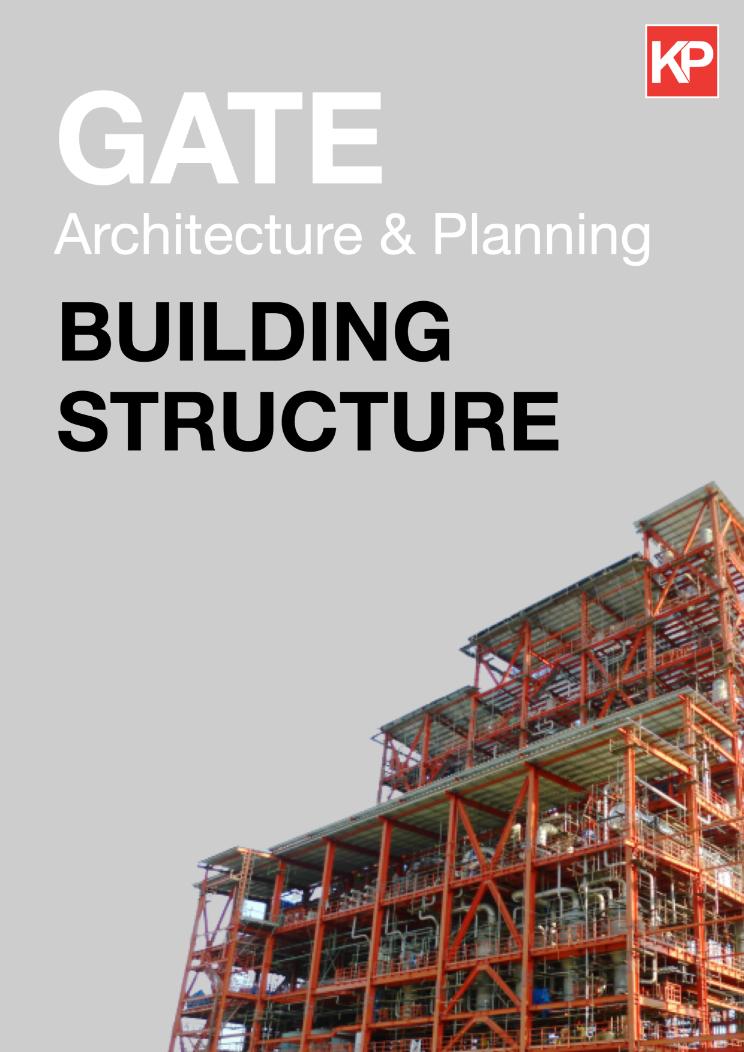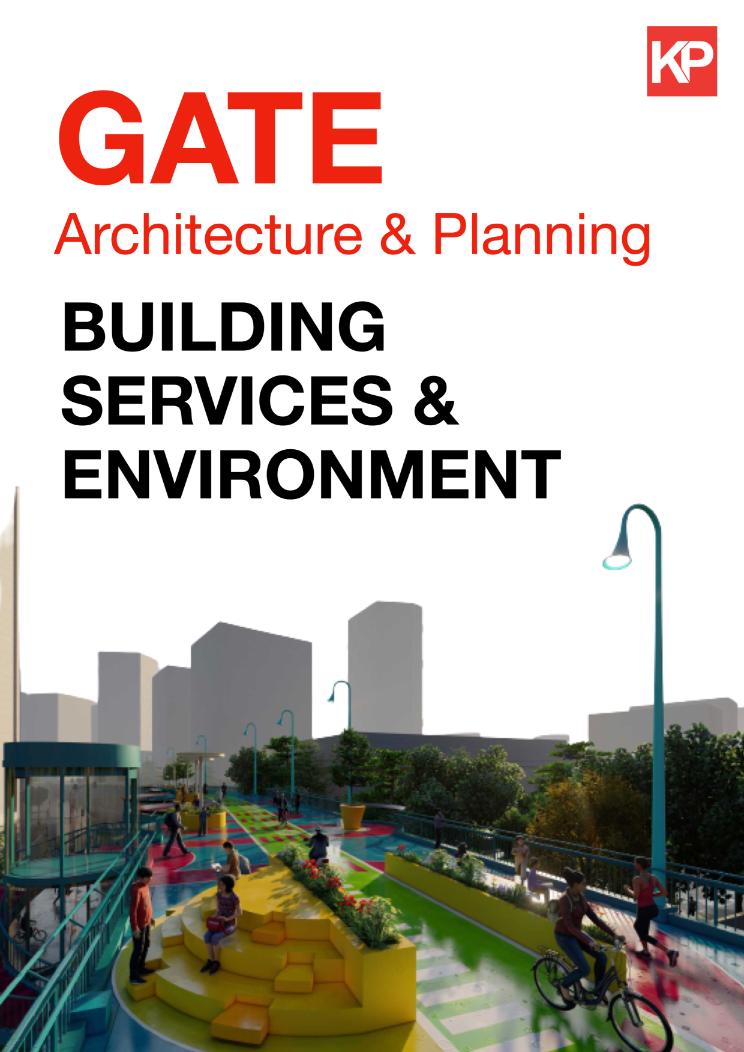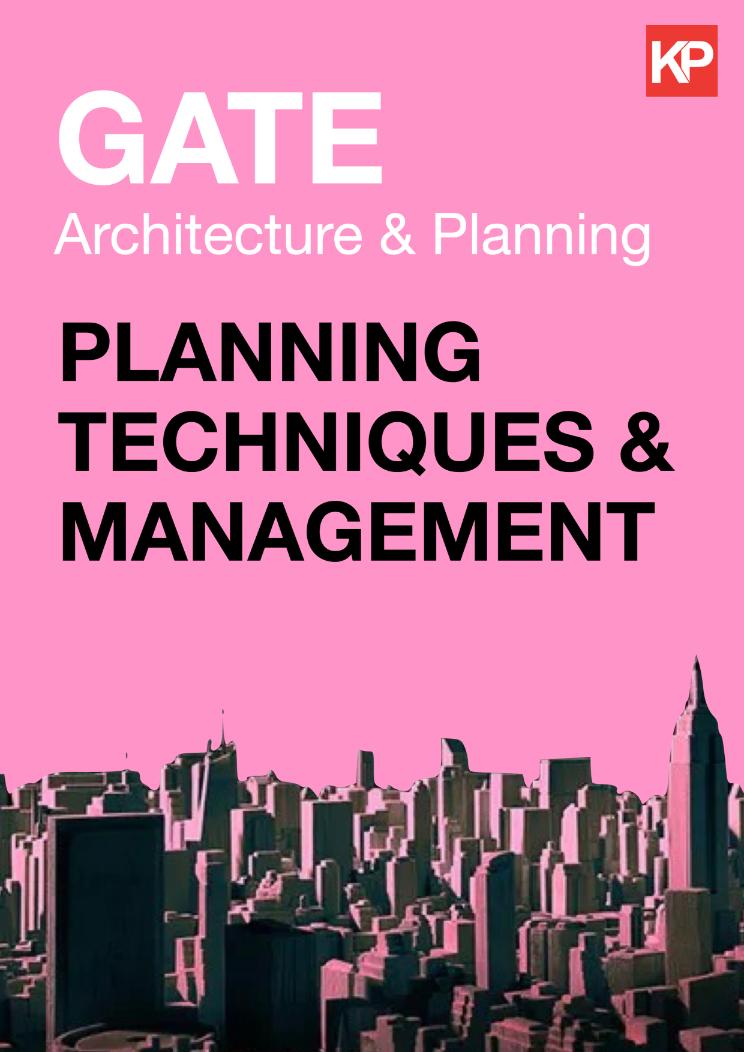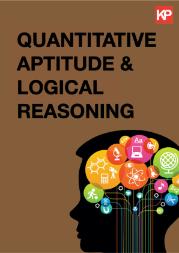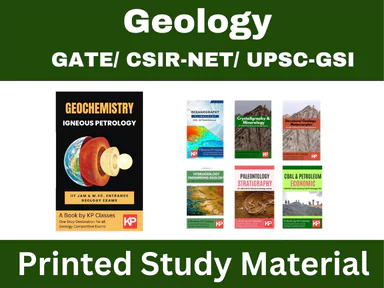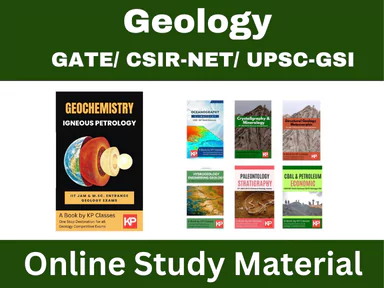GATE Architecture
To prepare for GATE architecture and planning, thoroughly review the syllabus, use recommended books, and solve previous year papers. Create a structured study plan, incorporating regular revision and mock tests for time management. Focus on numerical problem-solving and consider joining coaching or online courses. Maintain a healthy lifestyle, seek clarification for doubts, and stay positive. Consistent, disciplined study habits, tailored to your strengths and weaknesses, are crucial for success in the exam.
KP Classes Best option for “GATE architecture and planning”. Are you Preparing for GATE? Let’s Crack with KP Classes:-
| GATE architecture and planning (Syllabus) | Click Here |
| GATE solved previous year papers | Click Here |
| GATE Study Material | Click Here |
| GATE Preparation Best books | Click Here |
| GATE Mock Test | Click Here |
The Graduate Aptitude Test in Engineering (GATE) for architecture serves several purposes. Primarily, it assesses the comprehensive understanding and knowledge of candidates in the field. GATE scores are often a crucial criterion for admission to postgraduate programs in architecture, urban planning, and related disciplines at esteemed institutions. Additionally, GATE qualification is recognized by various public and private sector organizations, opening doors for career opportunities. The exam acts as a benchmark, ensuring a standardized evaluation of candidates’ skills and knowledge in architecture, making it a valuable tool for academic and professional advancement in the field.
The eligibility criteria for GATE (Graduate Aptitude Test in Engineering) may vary, and it’s important to check the official website or information brochure for the most recent and accurate details. However, here are the general eligibility criteria for GATE:
| Educational Qualification | Candidates should have completed or be in the final year of their Bachelor’s degree in Architecture or a related field. The degree should be a 5-year program. |
| Age Limit | There is no specific age limit to appear for GATE. |
| Nationality | GATE is open to Indian as well as international candidates. |
| Number of Attempts | There is no restriction on the number of attempts. Candidates can appear for GATE as many times as they wish. |
| GATE Best Coaching:- | www.Mentogate.com www.Kpclasses.com |
The difficulty of GATE for architecture can vary from person to person based on individual strengths, preparation, and background. Generally, GATE exams are considered challenging, testing a candidate’s in-depth knowledge and understanding of the subject matter.
Success in GATE architecture requires a thorough understanding of the syllabus, consistent preparation, and problem-solving skills. Many candidates find the exam to be moderately challenging, while others may perceive it as tough due to its competitive nature.
Effective preparation, including solving previous year papers and taking mock tests, can help candidates gauge the level of difficulty and enhance their readiness for the exam. KP Classes provide the best study material for GATE to the students. KP classes can help you more in passing this exam. If you are preparing for GATE then definitely visit once.
- GATE Free Mock Test (2024) Click Here
- GATE Study Material (2024) Click Here
- GATE Test Series (2024) Click Here
eligibility criteria for GATE (Graduate Aptitude Test in Engineering) in architecture and planning typically include:
- Qualification Bachelor’s degree in Architecture or a related field. (5-year program)
- Age No specific age limit
- Nationality Indian and international
- Attempts Candidates can appear for GATE as many times
KP Classes is the Best Coaching for GATE architecture and planning. KP Classes provides both online and offline facilities as per the convenience of the students. KP Classes is recognized for its GATE coaching in architecture and planning. Many students have found their programs beneficial, citing experienced faculty, comprehensive study materials, and effective teaching methodologies.
KP Classes Student result
GATE architecture and planning
| Year | Selection |
| 2023 | —— |
| 2022 | —– |
| 2021 | ——- |
| 2020 | ——- |
Latest Reviews and Testimonials
……..
KP Classes facilities For GATE 2024
……
KP Classes Provide (GATE Course Details)
No, GATE is not compulsory for pursuing a career in architecture. GATE is primarily an examination for admission to postgraduate programs in engineering and technology. However, for architecture, there are separate entrance exams and admission processes conducted by different institutions.
If you are interested in pursuing a Master’s in Architecture (M.Arch) or a related field, you should check the specific admission requirements of the universities or institutions where you plan to apply. These may include submitting a portfolio, academic qualifications, and possibly appearing for an entrance exam designed for architecture programs.
There is no specified limit on the number of attempts for the GATE exam, including the architecture paper. Candidates can appear for the GATE exam as many times as they wish, provided they meet the eligibility criteria for each attempt.
Details of students appearing for GATE exam for the year 2017-2024:-
| Year | Registered Candidates | Candidates Appeared | Qualified Candidates |
| 2017 | 9,22,167 | 7,87,148 | 1,29,149 |
| 2018 | 9,34,461 | 7,81,864 | 1,32,245 |
| 2019 | 9,27,616 | 7,79,632 | Not published |
| 2020 | 8,58,000 | 6,85,000 | 1,28,780 |
| 2021 | 8,82,684 | 7,11,542 | 1,26,813 |
| 2022 | 8,45,432 | 8,97,030 | 1,12,678 |
| 2023 | 6.7 Lakh | 5.17 Lakh | 1 Lakh |
| 2024 | ———- | ———- | ———- |
| 2025 | ———- | ———- | ———- |
In GATE Architecture engineering, a score of 75 or above is considered excellent, providing a strong chance for admission to top-tier engineering colleges in India and potential job opportunities in the Public Sector Undertakings (PSUs). A score ranging from 70 to 75 is also regarded as good, while a score between 60 to 65 falls within the average range. These benchmarks are based on past years’ GATE Architecture engineering exam scores. For GATE 2024, it’s advisable to aim for a score within these ranges to enhance your prospects in admissions and job placements.
| Level | Score |
| Law Score | 30 (Below) |
| Good Score | 70-75 |
| Average Score | 60-69 |
| Excellent Score | 75+ |
Approx 5.17 Lakh students Appeared in GATE 2023. Total number of Registered Candidates is Approx 6.7 lakh and total number of Qualified candidates is approx 1 Lakh.
- Total number of Registered:- 6.7 Lakh
- Total number of Appeared:- 5.17 Lakh
- Total number of Qualified:- 1 Lakh
The GATE for Architecture and Planning (AR) consists of a single paper. The paper code for GATE Architecture and Planning is “AR.” The subjects covered in the GATE Architecture and Planning paper include:
- Architecture and Design
- Building Materials, Construction, and Management
- Building and Structures
- Environmental Planning and Design
- Urban Design
- City Planning
These subjects cover various aspects related to architecture, urban planning, and design. The GATE Architecture and Planning paper assesses candidates’ understanding and knowledge in these areas to evaluate their eligibility for admission to postgraduate programs in architecture and planning.
The weightage of subjects in the GATE Architecture and Planning (AR) paper is not explicitly defined by specific percentages. The GATE Architecture and Planning paper typically consists of questions from various subjects, and the distribution can vary from year to year.
| GATE Topics | weightage of Marks |
| Building and Structure | 25-30 |
| Planning Techniques and Management | 10- 15 |
| Architecture & Design | 20-30 |
| Urban Planning and Housing | 15-20 |
- The total weightage of the general ability is 15 marks.
- The weightage of the core subject is 85 marks which are divided into parts, Part A (60 marks), & part B (25) marks.
- 5 questions of 1 mark & 5 questions of 2 marks will be asked from the GA section of the GATE.
- Core subject consists of 25 questions of 1 mark each and 30 questions of 2 marks each.
GATE Geology
The Graduate Aptitude Test in Engineering (GATE) for geology covers a broad range of topics related to Earth sciences. Here are some important topics that you should focus on for the GATE geology exam:
Geomorphology:
- Basic concepts of geomorphology
- Landforms and their classification
- Geomorphic processes
Structural Geology:
- Basic concepts of structural geology
- Stress and strain
- Folds, faults, and joints
- Geological maps and cross-sections
- Mineralogy:
Crystallography
- Physical and chemical properties of minerals
- Optical mineralogy
Petrology:
- Igneous, sedimentary, and metamorphic rocks
- Petrographic techniques
- Classification and petrogenesis
Economic Geology:
- Mineral deposits and their classification
- Ore mineralogy
- Exploration and mining methods
Sedimentology:
- Sedimentary processes and environments
- Sedimentary rocks and their classification
- Stratigraphy
Paleontology:
- Fossils and their significance
- Evolution and geological time scale
Stratigraphy:
- Principles of stratigraphy
- Correlation techniques
- Stratigraphic nomenclature
Hydrogeology:
- Groundwater occurrence and movement
- Aquifers and aquitards
- Groundwater exploration and management
Environmental Geology:
- Natural hazards (earthquakes, landslides, etc.)
- Environmental impact assessment
- Global environmental issues
Remote Sensing and GIS:
- Basics of remote sensing
- GIS applications in geology
Geophysics:
- Basic concepts of geophysics
- Seismic methods
- Gravity and magnetic methods
Tectonics:
- Plate tectonics
- Tectonic evolution of continents
- Orogenesis
Engineering Geology:
- Geological investigations for engineering projects
- Slope stability
- Foundation design
Geochemistry:
- Basic concepts of geochemistry
- Major and trace elements
- Isotopes and their applications
Remote Sensing and GIS:
- Basics of remote sensing
- GIS applications in geology
Make sure to refer to the official GATE syllabus for the most accurate and up-to-date information. Additionally, solving previous years’ question papers and taking mock tests can be beneficial for exam preparation.
Educational Qualification:
A candidate must have a bachelor’s degree in Geology or a related field (like Applied Geology or Geo-Science). Candidates with a degree in Engineering or Technology may also be eligible, provided they have completed the necessary geology-related courses.
Degree Status:
The candidate should have either completed their Bachelor’s degree or be in the final year of their program at the time of application.
Minimum Percentage:
There is no specific minimum percentage requirement. However, candidates are advised to check the specific eligibility criteria of the institutions or organizations where they wish to seek admission, as some institutes may have their own minimum percentage requirements.
Age Limit:
There is no age limit to appear for the GATE exam.
Number of Attempts:
There is no restriction on the number of attempts a candidate can make for the GATE examination.
Preparing for the GATE Geology exam requires a systematic and focused approach. Here are some tips to help you prepare effectively:
Understand the Syllabus:
Familiarize yourself with the GATE geology syllabus. This will help you identify the topics you need to cover and allocate your time accordingly.
Create a Study Plan:
Develop a realistic and well-structured study plan. Allocate specific time slots for each topic, giving more time to areas that you find challenging.
Use Standard Study Material:
Refer to standard textbooks and study materials recommended for the GATE geology exam. Make sure to cover the entire syllabus and focus on understanding fundamental concepts.
Previous Year Question Papers:
Solve previous years’ question papers to understand the exam pattern and identify the types of questions asked. This will also help you manage your time during the actual exam.
Mock Tests:
Take regular mock tests to simulate exam conditions. This will improve your time management skills and build confidence. Analyze your performance in mock tests to identify areas that need more attention.
Revision:
Regular revision is crucial. Create concise notes for quick revision, especially for formulas, key concepts, and important facts.
Practice Numerical Problems:
Geology exams often involve numerical problems. Practice solving numerical problems to enhance your problem-solving skills.
Join Coaching Classes :
Consider joining GATE coaching classes if you prefer structured guidance. Coaching classes can provide a systematic approach to the syllabus and offer expert guidance.
There are several exams that geologists may take, depending on their career goals and the specific field within geology they are interested in. Here are a few notable exams for geologists:
GATE (Geology and Geophysics):
The Graduate Aptitude Test in Engineering (GATE) includes a Geology and Geophysics paper. GATE scores are often used for admission to postgraduate programs (M.Tech/Ph.D.) in prestigious institutions and for recruitment in various public sector undertakings (PSUs).
NET (National Eligibility Test):
The National Eligibility Test (NET) is conducted by the University Grants Commission (UGC) in India. The NET exam for Earth Science is applicable to candidates interested in research or teaching positions. Qualified candidates may be eligible for Junior Research Fellowship (JRF) or Assistant Professor positions.
UPSC Combined Geo-Scientist and Geologist Examination:
The Union Public Service Commission (UPSC) conducts the Combined Geo-Scientist and Geologist Examination. This exam is for recruitment to the Geological Survey of India (GSI), Central Ground Water Board, and other government organizations.
State Public Service Commission Exams:
State Public Service Commissions often conduct exams for recruitment to geological positions in various state government departments.
CSIR-NET (Council of Scientific and Industrial Research – National Eligibility Test):
CSIR-NET is conducted by the Council of Scientific and Industrial Research. The Earth, Atmospheric, Ocean, and Planetary Sciences exam is relevant for geoscientists and researchers.
IIT JAM (Joint Admission Test for M.Sc.):
The IIT Joint Admission Test for M.Sc. (IIT JAM) is another option for those interested in pursuing a master’s degree in geology or related fields in the IITs and other reputed institutions.
Oil and Natural Gas Corporation (ONGC) Exam:
ONGC, a major PSU, conducts recruitment exams for geologists and geophysicists for positions in the oil and natural gas industry.
Preparing for the CSIR-NET (Council of Scientific and Industrial Research – National Eligibility Test) in Earth Science requires a well-organized and focused approach. Here are some tips to help you prepare effectively:
Understand the Syllabus:
Familiarize yourself with the CSIR-NET Earth Science syllabus. Understand the topics and subtopics that will be covered in the exam.
Create a Study Plan:
Develop a realistic study plan that covers the entire syllabus. Allocate specific time for each topic, giving more attention to areas where you feel less confident.
Use Standard Reference Books:
Refer to standard textbooks and reference materials recommended for Earth Science. Ensure that you cover the fundamental concepts in geology, geophysics, atmospheric science, and oceanography.
Previous Year Question Papers:
Practice solving previous years’ question papers to understand the exam pattern and the type of questions asked. This will also help you improve your time management skills.
Mock Tests:
Take regular mock tests to assess your preparation level. Mock tests simulate exam conditions and help you identify areas that need further improvement.
Focus on Core Concepts:
Pay special attention to core concepts in geology, geophysics, atmospheric science, and oceanography. Build a strong foundation in these areas as they form the basis of many questions.
Stay Updated:
Keep yourself updated with recent developments and research in Earth Science. Stay informed about any changes in the exam pattern or syllabus.
Use Visual Aids:
Use diagrams, charts, and visual aids to understand complex concepts. Visualization can help in better retention and understanding of geological processes.
Discussion Groups:
Join online forums or discussion groups where you can interact with fellow CSIR-NET aspirants. Discussing doubts and sharing insights can be beneficial.
Regular Revision:
Schedule regular revision sessions to reinforce your learning. Create concise notes for quick revision of key concepts and formulas.
The number of hours required for CSIR-NET preparation can vary from person to person based on individual factors such as familiarity with the subject, academic background, and personal study habits. However, a common recommendation is to aim for at least 4 to 6 hours of focused and productive study per day.
KP Classes is the Best Coaching for CSIR-NET Earth Science. KP Classes provides both online and offline facilities as per the convenience of the students. KP Classes is recognized for its CSIR-NET coaching in Earth Science. Many students have found their programs beneficial, citing experienced faculty, comprehensive study materials, and effective teaching methodologies.
KP Classes Student result
CSIR-NET Earth Science
| Year | Selection |
| 2023 | —— |
| 2022 | —– |
| 2021 | ——- |
| 2020 | ——- |





